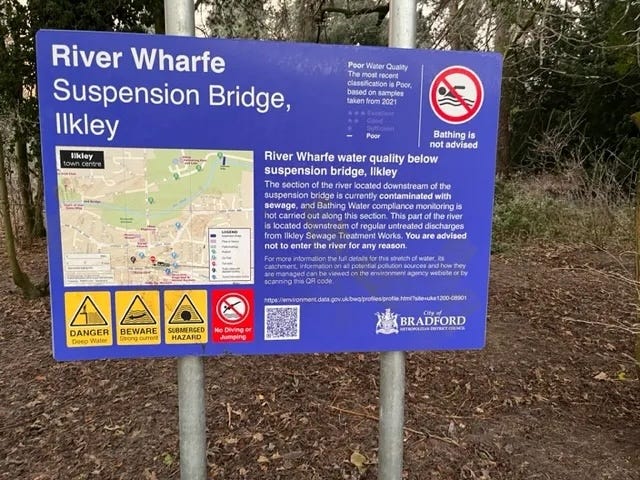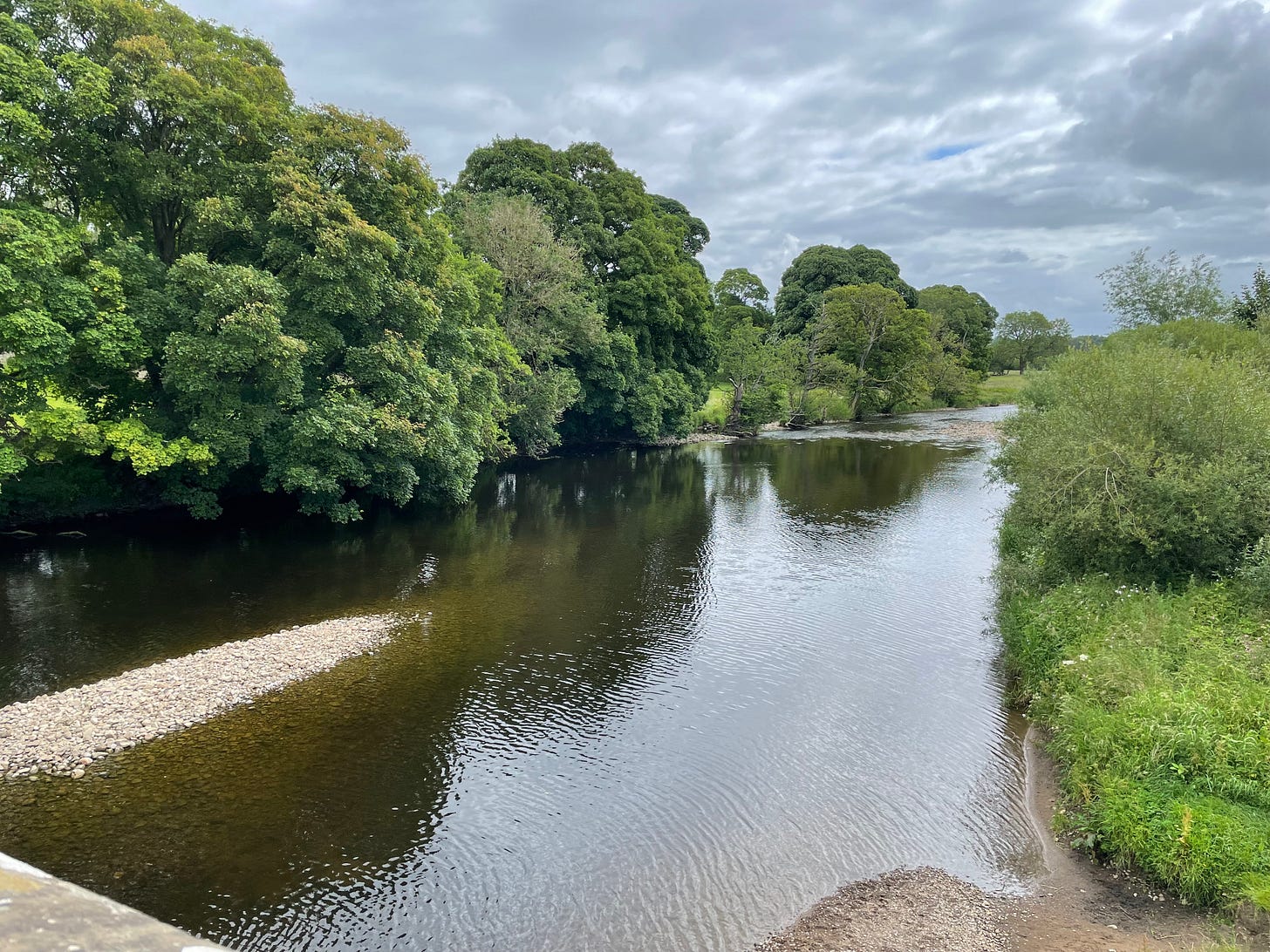'There's a lot more than human waste lurking beneath the surface'
Campaigners discover 30 chemical pollutants at Yorkshire river's designated bathing site
Citizen scientists from 23 communities, including the Ilkley Clean River Group, have contributed to the largest inland bathing water quality study ever conducted in the UK.
The study revealed that the River Wharfe at Ilkley had among the highest levels of E.coli and organic chemicals in the study with metformin, a drug used to treat type 2 diabetes, caffeine and nicotine being present at the highest concentrations of the chemicals tested.
Di Lury from the Ilkley Clean River Group said the chemicals found in the river can build up in the environment and enter the food chain causing untold damage on our ecosystems.
“The testing here in Ilkley has once again shown the presence of exceptionally high concentrations of E.coli but also found the presence of a large number of chemical contaminants.
“Whilst the cocktail of chemicals discovered are at levels which are unlikely to pose an immediate risk to human health there is a very real risk of further development of antibiotic resistance which is known to be one of the biggest threats for our future.”
E-coli can cause stomach cramps, diarrhea and vomiting. Although healthy adults usually recover from infection with E-coli within a week, young children and older adults have a greater risk of developing a life-threatening form of kidney failure.
The groundbreaking national study saw citizen scientists in Ilkley collect daily water samples from the Cromwheel (the testing point for bathing) for one week in the summer.
Bathing waters are traditionally monitored by the Environment Agency in England for up to 20 weeks during the bathing season, focusing primarily on two harmful bacteria, E. coli and intestinal enterococci.
However, this national citizen science-led study revealed high levels of organic substances which included a cocktail of pharmaceuticals, PFAS, pesticides, vet medicines, caffeine and nicotine, with Sheeps Green on the River Cam in Cambridge seeing the highest number of organics detected at a total of 42.
The intensive monitoring at our most loved waterways highlighted the need to expand the Environment Agency monitoring regime to include a broader range of contaminants that may pose risks to human health.
The results do not cover some of the local waterways where we have regularly been following campaigns here such as Save Our Swale and Stop Ure Pollution, as they have not yet been granted Designated Bathing Water (DBW) status.
Those campaign groups are seeking the change in status for the waterway as a way to ensure regular monitoring for pollution is carried out.
Radical reform needed
This citizen science study was a collaboration with Surfers Against Sewage, Watershed Investigations and the University of York to raise awareness about the quality of inland bathing waters and demand radical reform of current legislation to account for emerging pollutants that pose new threats to public health.
The findings of the study are set to inform future water quality policies and shape the direction of environmental regulations in the UK, with a government consultation on Bathing Water Regulation reform in England and Wales, responses until Monday 23 December.
Chief executive of Surfers Against Sewage, Giles Bristow, said the true environmental and health impact of a ‘slurry of pollutants’, which include banned and carcinogenic forever chemicals, are still being revealed:
"The saturation of our waterways with sewage pollution is well known, but these findings demonstrate there's a lot more than human waste lurking beneath the surface. With regulators and the government turning a blind eye, citizen scientists, like those in the Ilkley Clean River Group have acted to lift the lid on the toxic chemical cocktail that's leeching into our rivers, lakes and seas.
“These findings must be the catalyst that ends the era of inadequate water quality testing and kick-starts a future where the public are given a full picture of what's coursing through the UK's waters. We've lifted the lid, now it's time to flush the pollutants our of our rivers, lakes and seas."
More on the bathing water campaign.
The government consultation on bathing water is here.
We’ll be back tomorrow (Tuesday) with the full newsletter and will also bring subscribers a second special report on Thursday when the true amount water customers are to be charged will be announced.





